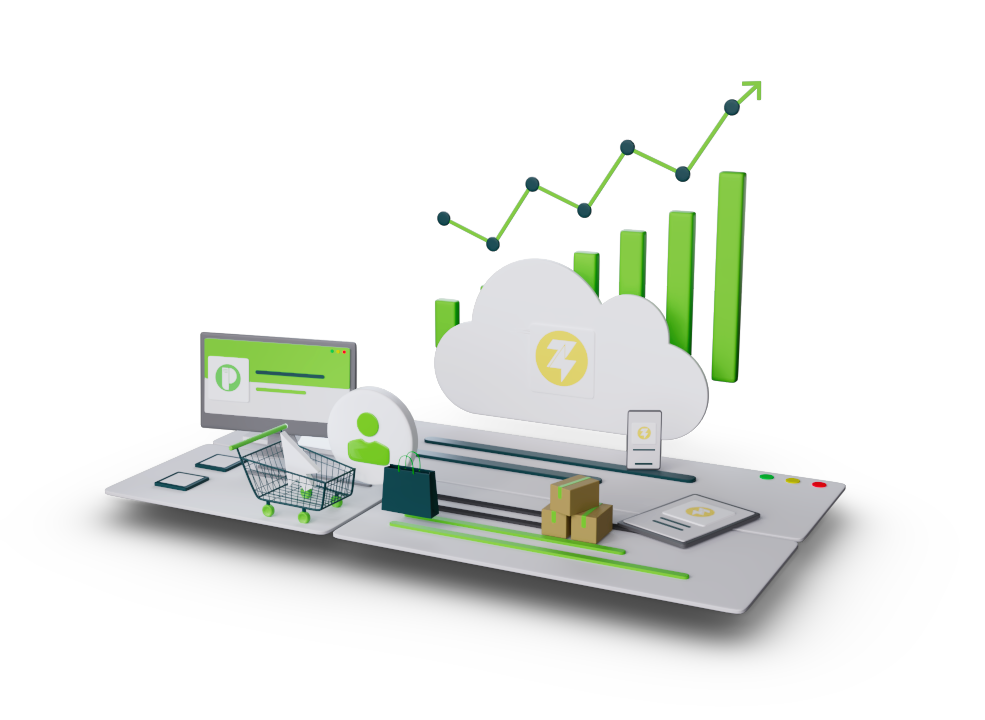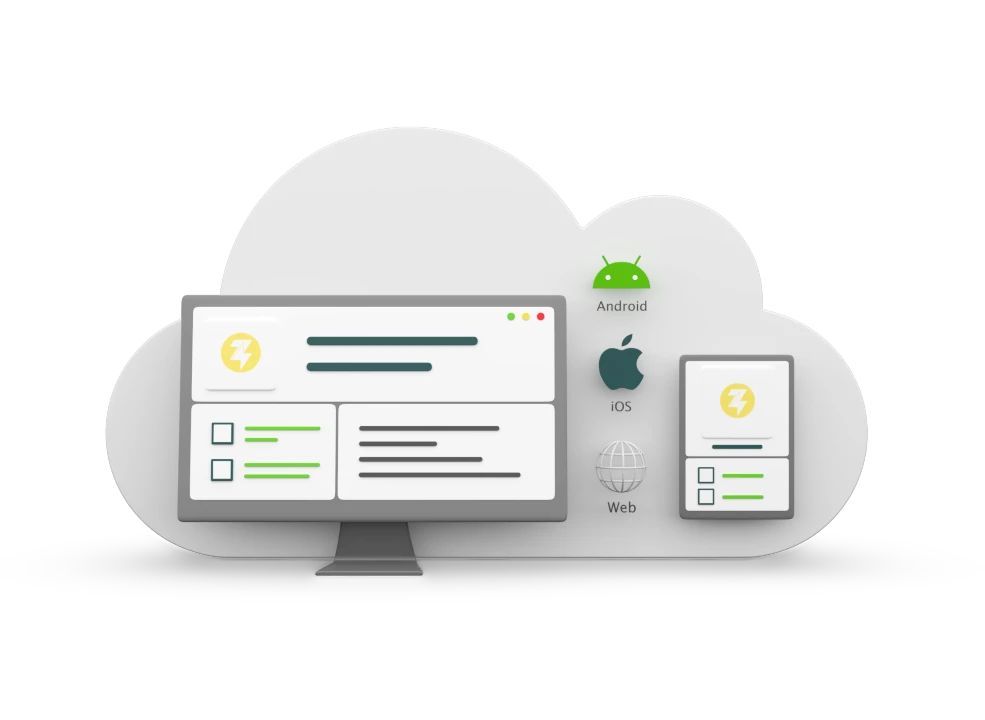Why Building a Custom Multi-Store POS System is a Bad Idea for a Retailer

Managing multi-store chains effectively requires more than just overseeing sales; it demands a comprehensive system that integrates inventory management, customer data, and real-time reporting. Hence, a Point of Sale (POS) system becomes the nerve center of any retail operation. Retailers, especially those operating multiple outlets, need a robust POS system that can synchronize activities across locations, ensuring consistency, efficiency, and improved customer experience.
The idea of building custom multi-store POS software often crosses the minds of retailers. This is driven by motivations such as the desire for tailored features, complete control, and the assumption of long-term cost savings. However, while the idea of creating a bespoke POS system sounds appealing, the reality often brings a host of challenges that overshadow the perceived benefits. Here’s why building a multi-store POS system may not be the smart choice for your retail business.

Make your retail operations effortless with Ginesys One's scalable POS solution.
The Allure and Risks of Developing a Custom POS Solution
Reasons Retailers Opt for Custom POS Solutions
- Flexibility and Control: Many retailers are attracted to the prospect of a custom POS system because it offers the flexibility to design a solution tailored precisely to their unique needs. Off-the-shelf software may have features that feel redundant, while certain niche requirements may not be addressed.
- Meeting Unique Business Needs: Retailers with specialized processes or complex workflows may feel that only a custom system can accommodate their specific needs. For instance, a retail chain that offers bespoke services or unique product configurations might believe that a generic POS system won’t be able to handle their intricacies.
- Desire for Ownership: The allure of complete ownership, without reliance on third-party vendors, is another factor driving the decision to build a custom system. This desire stems from the belief that avoiding vendor lock-in could lead to long-term cost savings and strategic independence.
Reality Check: Why Customization Doesn’t Guarantee Success
Despite these reasons, the assumption that custom POS systems guarantee better results is misleading. The process is far more complex than it seems on the surface. Building a system from scratch, especially for multi-store environments, involves significant time, investment, and ongoing maintenance. Moreover, the dynamic retail tech landscape makes it challenging for custom systems to stay relevant, leading to issues in scalability, updates, and integration with emerging technologies.

Enhance your retail efficiency with an integrated multi-store POS system.
Challenges of Building a Custom Multi-store POS System
1. High Development Costs and Time
Building a custom POS system from the ground up is a considerable financial and time investment. The costs include hiring a development team, investing in infrastructure, software licensing, and continuous updates. A project of this scale often requires months, if not years, to reach a stable version. During this period, the retailer may face disrupted operations and delayed returns on investment.
For example, hiring a team of skilled developers with experience in building scalable systems can cost upwards of $100,000 annually, depending on their expertise and region. Additionally, the time spent in development and testing translates into lost opportunities and a delayed competitive edge.
2. Long-term Update and Maintenance Challenges
Developing the initial version of a custom POS system is only the beginning. Retail technology trends evolve rapidly, necessitating regular updates, feature enhancements, and security patches. Managing these updates internally can become a significant burden, especially for retailers without a dedicated IT team.
A custom-built system also faces the risk of unforeseen bugs and technical issues. Unlike pre-built solutions backed by experienced providers, a custom-built POS lacks a robust support system. Retailers may find themselves grappling with system downtimes, bugs, and unexpected maintenance costs, impacting the customer experience and sales performance.

3. Stability and Scalability Issues in Custom Solutions
Stability and scalability are paramount for multi-store retail operations. As a retailer expands, the POS system must handle increasing transaction volumes, inventory synchronization across locations, and complex data analytics without compromising performance. Custom POS systems often struggle in this regard because they are not tested in various real-world scenarios like pre-built solutions.
Moreover, a custom system may be designed with the current scale in mind but may falter as the retailer expands. The cost and complexity of re-engineering the system to accommodate growth can be prohibitive, defeating the initial purpose of custom development.
4. Risk of Outdated Technology
Technology is continually advancing, and retail trends are progressing faster than ever. Mobile payments, contactless transactions, AI-driven analytics, and omnichannel integrations have become critical features in modern POS software. Keeping a custom solution updated with these features requires significant resources. If not proactively managed, a custom system can quickly become outdated, limiting its ability to keep up with industry standards and customer expectations.
.webp)
Cut development costs and switch to a proven POS platform today.
Why Pre-Built Multi-Store POS Software is the Right Choice
1. Focus on Core Business
For retailers, the primary focus should be on delivering an exceptional customer experience, optimizing sales strategies, and scaling their business. Building and maintaining a custom system diverts attention away from these core activities. On the other hand, opting for a pre-built multi-store solution allows retailers to concentrate on their business while the software provider handles technical upkeep, updates, and feature enhancements.
2. Proven Stability and Support
Pre-built POS solutions are designed by industry experts and are tested across various retail environments. This extensive testing ensures that the software can handle different scenarios, providing reliability and stability. Moreover, these solutions come with dedicated support teams that offer prompt troubleshooting, minimizing downtime and enhancing the overall user experience. In contrast, retailers relying on a custom system might face prolonged downtimes while their in-house teams attempt to resolve unforeseen issues.

Upgrade your retail chain software to a future-proof POS system with Ginesys One.
3. Future-Proofing Your Retail Business
Investing in a pre-built multi-store POS system is a strategic move toward proofing a business for the future. Leading solutions such as Ginesys One continuously evolve to incorporate new features and industry best practices. This ensures compatibility with emerging trends, such as omnichannel retail, mobile payments, and AI-driven customer insights, without the need for retailers to invest additional resources in system updates.
Pre-built POS software is designed with scalability in mind, catering to both small retail chains and large enterprises. As a business grows, the system can easily accommodate additional stores, inventory, and transaction volumes without compromising performance.
Ginesys One: The Perfect Solution for Multi-Store Retail Chains
For businesses looking for efficient and reliable multi-store retail chain software, Ginesys One emerges as a comprehensive and reliable solution. Here’s why it stands out:
1. Comprehensive Omnichannel Retail Integration
Ginesys One offers seamless integration across various retail channels—be it in-store, online, or mobile POS. This single-suite approach ensures a unified experience, synchronizing inventory, orders, and customer data in real-time. With centralized order management, retailers can provide a consistent shopping experience across all touchpoints, enhancing customer satisfaction and engagement.
2. Real-Time Inventory & Stock Management
Managing stock across multiple locations can be challenging, but Ginesys One simplifies it with its real-time inventory tracking. The system serves as a single source of truth, reducing discrepancies and preventing stockouts or overstocking. Retailers gain complete visibility of inventory levels across all stores, enabling data-driven decision-making that boosts operational efficiency and reduces losses.

3. Centralized Data Management with Cloud Connectivity
Ginesys One’s centralized data management system, backed by cloud connectivity, provides a consolidated view of sales, inventory, and customer insights across all store locations. Retailers can access real-time data from a single dashboard, ensuring efficient monitoring and strategic planning. The cloud-based architecture ensures that all modules are synchronized, offering seamless access and real-time updates.
4. Flexible Module Selection and API Integration
Whether you need a full suite of tools or just a few modules, Ginesys One offers the flexibility to pick and choose based on your requirements. Its extended API capabilities allow businesses to easily integrate with existing systems or add custom features, ensuring smooth operations without the hassle of multiple vendors.
5. Enterprise-Grade Stability, Scalability, and Support
Built for stability and scalability, Ginesys One supports high transaction volumes and real-time data synchronization, making it ideal for large retail chains. The platform’s robust infrastructure is designed to grow with your business, offering faster time to market and reducing setup complexities. Plus, with industry-leading support, retailers can rely on timely assistance and regular updates, minimizing downtime and maximizing performance.
6. Enhanced Brand Performance and Visibility
Ginesys One helps retailers elevate their brand by improving visibility, transparency, and operational efficiency. The suite’s streamlined stock and fulfillment processes ensure faster delivery times and better customer experiences, driving growth and enhancing brand loyalty.

Centralize your multi-store management with our all-in-one POS software.
Final Thoughts
While the idea of building a custom-built system may initially seem attractive due to the promise of tailored features and control, the reality is far more complex and costly. The challenges of high development costs, ongoing maintenance, scalability issues, and the risk of outdated technology make custom solutions a risky investment for most retailers.
Pre-built multi-store POS software such as Ginesys One offer an efficient, future-proof alternative. By choosing a proven solution, retailers can focus on their core business operations, improve customer experience, and scale their operations efficiently without worrying about the technical complexities of system maintenance. Contact Ginesys today to learn how their POS system can transform your retail operations.
